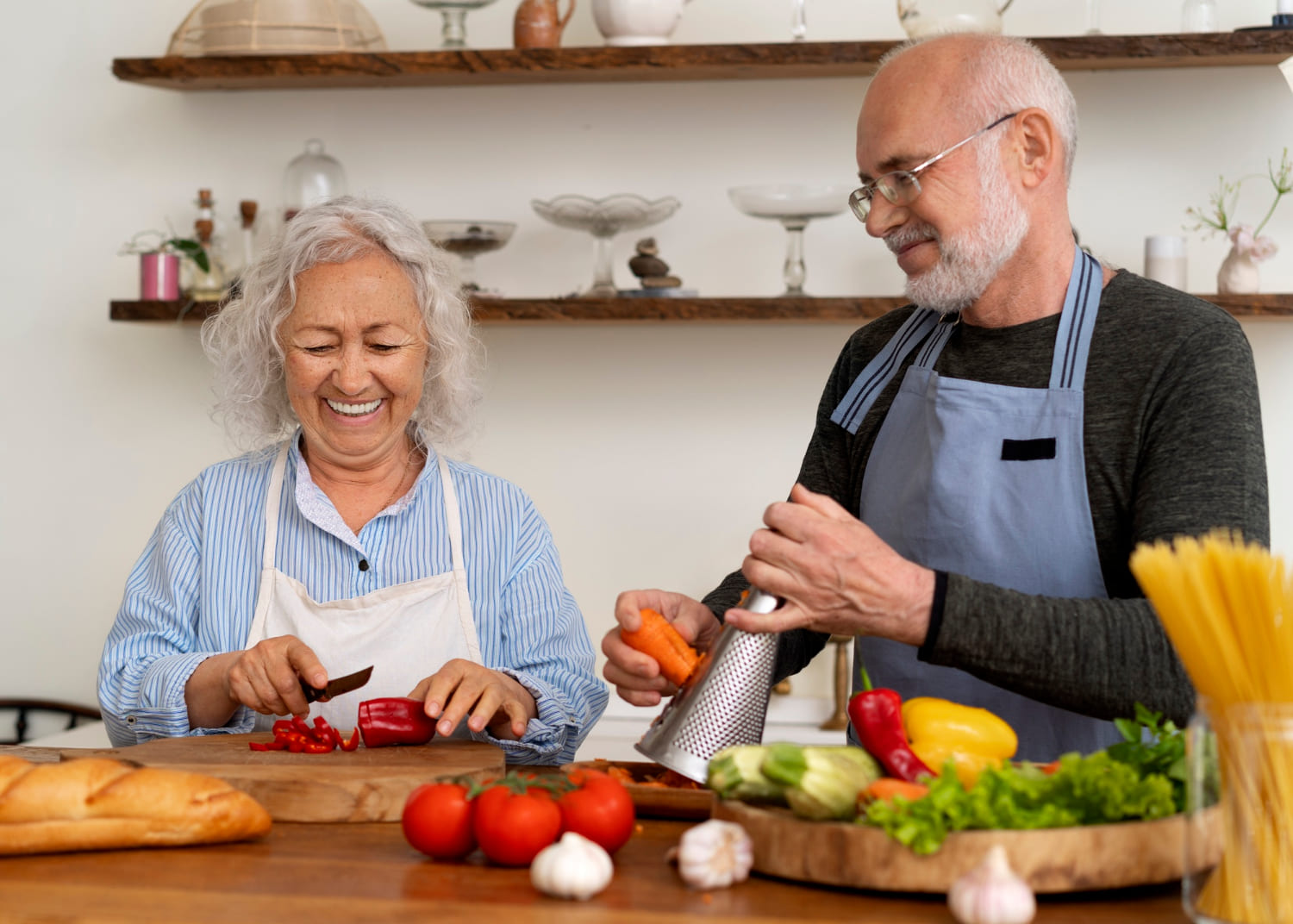Home Care
Home Care that Promotes Independence in Seniors
Ensuring that seniors can live independently in their homes is an act of love, respect, and acknowledgment of their immense value. From minor adaptations to emotional and physical support, there are ways to help them maintain autonomy without compromising safety. This article explores essential strategies and practical resources to foster seniors’ independence in the most cherished environment: their home.
Whether you’re a family caregiver, a senior seeking greater autonomy, or a healthcare professional looking to support your patients, this practical guide has something for you.

Why Independence is Crucial for Seniors
Independence is more than freedom; it’s a crucial pillar for emotional and physical well-being. Studies have shown that staying active and engaged in daily routines reduces the risk of depression and cognitive decline in seniors. Furthermore, making decisions about their care boosts their self-esteem and sense of control.
However, independence does not mean facing challenges alone. This is where a comprehensive approach combining safety, adaptability, and community support makes a significant difference.
What are the Common Obstacles?
Limited Mobility: May arise from conditions like arthritis or post-surgery.
Cognitive Issues: Such as frequent forgetfulness or early signs of dementia.
Physical Barriers at Home: Stairs, loose rugs, and tight spaces pose fall risks.
Lack of Resources: Many families struggle to provide adequate services or structures.
Understanding and addressing these issues can transform home care.
Essential Adaptations for an Accessible Home
A safe home is the foundation of independence. Here’s how to make a senior’s space friendly, comfortable, and secure.
Critical Areas to Adapt in the Home
Bathroom:
The bathroom is prone to accidents. Implement:
- Grab bars in the shower and near the toilet.
- A shower seat.
- Non-slip flooring.
Kitchen:
Keep frequently used items within reach and consider:
- Appliance locks to prevent accidents.
- Functional smoke and carbon monoxide detectors.
Bedroom:
Ensure comfort:
- A bed at an accessible height.
- Nightlights to illuminate paths to the bathroom.
- Organizers for small items like glasses and medication.
Throughout the House:
- Eliminate trip hazards: Remove slippery rugs and cords on the floor.
- Install adequate lighting: Ensure all rooms are well-lit.
- Anti-theft protections: Secure locks on doors and windows.

Technology Serving Seniors
You don’t need to be tech-savvy to benefit from modern technology:
- Medical alert systems like Life Alert provide peace of mind in emergencies.
- Medication reminder apps like MediSafe help stay on track.
- Smart assistants (Alexa, Google Home) can answer questions, turn on lights, or play music with voice commands.
Technology isn’t just useful; it becomes a powerful tool to maintain the balance between independence and safety.
Daily Activities that Foster Independence
Movement brings happiness. Actively participating in daily routines helps maintain physical health and nourishes the mind.
Physical Activities to Maintain Mobility
Light Exercises: Practicing yoga or tai chi strengthens joints and improves balance.
Short Walks: A stroll around the park or neighborhood can rejuvenate.
Occupational Therapy: Collaborate with a therapist on personalized activities to enhance motor skills.
Cognitive Activities
Help keep the mind active:
- Solve crosswords, sudokus, or puzzles.
- Participate in art or writing workshops.
- Learn something new, like using social media or cooking skills.
The key is to encourage the desire to engage and stay present.

Community and Emotional Support
Maintaining independence also means staying emotionally connected. The feeling of isolation can severely affect mental health, but fostering community can change this.
Ways to Connect
Regular Visits: Family and friends should be active participants in their lives.
Local Support Groups: These groups offer companionship and useful resources.
Volunteering or Shared Hobbies: Engage in group activities like gardening workshops, community events, or book clubs.
Even regular calls or video chats can have a significant impact on seniors’ lives. Support doesn’t always require a lot of time; it requires consistency.
How Caregivers Can Make a Difference
Caregivers are fundamental pillars in preserving seniors’ independence. However, this role can also be exhausting. Therefore, it’s vital to establish a balance between care and self-care while being a facilitator rather than a controller.
Tips for Caregivers
Active Listening: Ask for their preferences and respect them.
Set Shared Goals: Help them outline small objectives, like learning something new or walking a certain distance daily.
Seek Support Networks: Joining caregiver forums or associations provides strategies and connects you with people in similar situations.
Remember, your support should not overshadow their ability to make decisions but complement it.
Make Independence Their Greatest Ally
Promoting independence in seniors doesn’t mean leaving them alone; it means empowering them to live safely, connected, and actively. From adjustments in the home to activities that nurture their body and soul, every step matters.
Ultimately, the goal should be to find that perfect balance where the needs for safety do not sacrifice the deeply valued autonomy.


